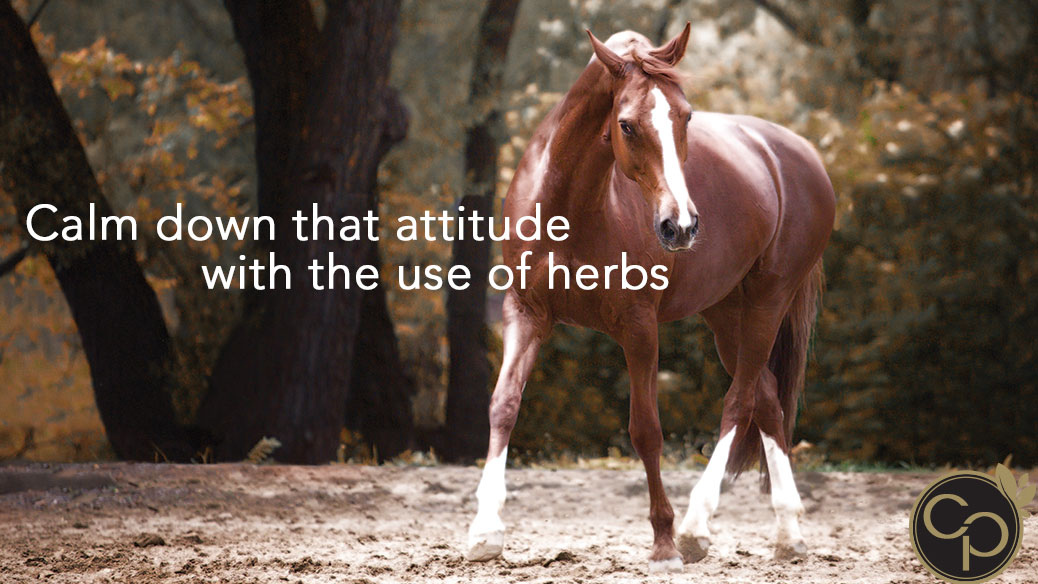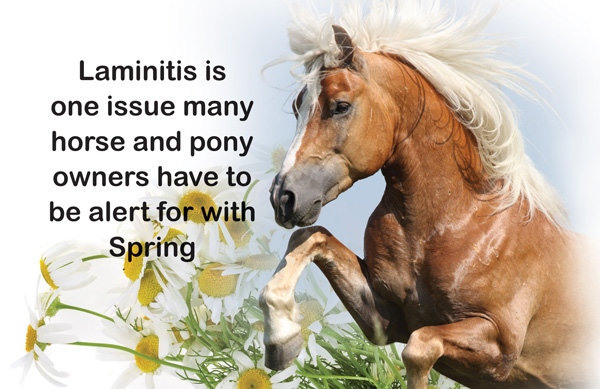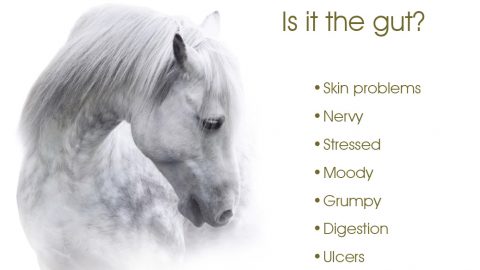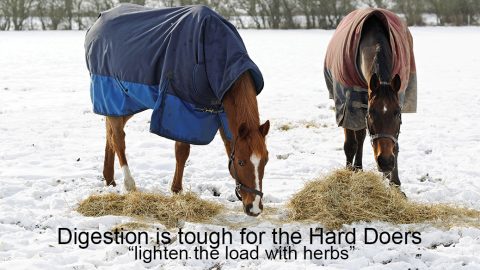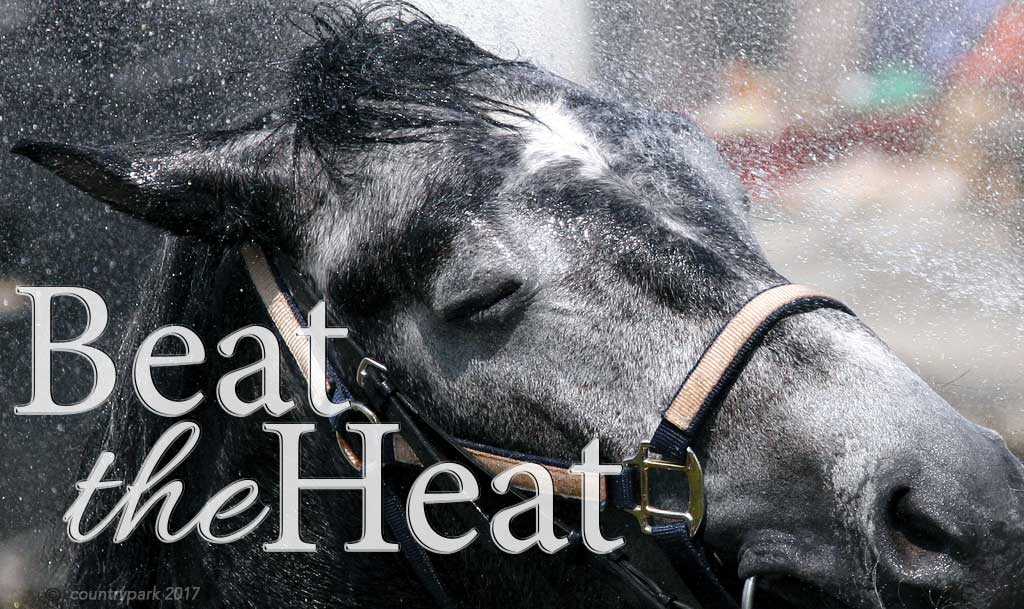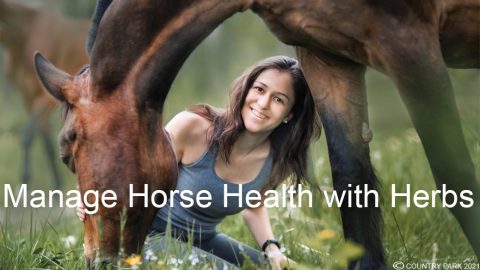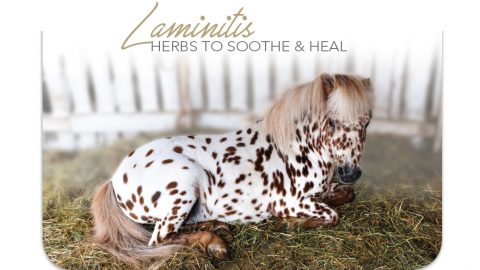Using calming herbs for horses is a natural way to relieving tension and anxiety. You can use them on their own or try our Attitude Blend that may assist your horse due to its calmative and nervine actions by acting on the nervous and endocrine systems.
If you are not competing [as some herbs may be restricted by equine sport regulators] you have scope to introduce “calming herbs” to help with the training of your horse.
Keep in mind that over excited, volatile, highly strung, anxious, apprehensive or worried behaviour is not always a demonstration of bad behaviour. Identifying the cause of the problem can help with how you deal with the behaviour.
A good knowledge of the horse’s background and behavioural patterns is useful. Sometimes irregular conduct can be pain related or through a lack of experience (horse or rider) or fear. Horses are by nature very insecure and stress is natural when asked to do something new, or repeat something that was not a good experience.
If you try any of these herbs to help your horse relax and there is no measurable response to the herbs, check that gear is not causing pain, book a massage, and talk to your veterinary surgeon.
These herbs will help your horse relax. The herbs are not meant to replace steady and consistent training. For this reason, where the behaviour is dangerous, the herbs are not to be relied upon as the only solution.
Chamomile
For younger horses, or those who act like they are having a tantrum. May settle an irritated gut with a girthy horse. If unsure of which herb to use, start with chamomile. When giving in combination add 1 to 2 heaped tablespoons, once or twice daily; if giving chamomile only, you can give up to 1 cup daily.
Hops
In gypsy folklore hops was used as a nervine with young colts. It can be used with aggressive stallion or stallion-like behaviours and is useful with watery stress diarrhoea, especially if it is stinky. Give 1 to 4 heaped teaspoons; once or twice daily. This amount applies if given on its own or in combination.
Lemon Balm
For horses that appear depressed, especially when left alone in a paddock or where they have lost a companion. May be useful when developing an understanding between a new horse and rider. When giving in combination add 1 to 2 heaped tablespoons, once or twice daily; if giving lemon balm on its own, 1 to 3 heaped tablespoons daily.
Limetree Flowers
Is useful with horses that sweat when they are fearful or experiencing anxiety and claustrophobic travelers. When given on its own or in combination, give 1 to 2 heaped tablespoons, once or twice a day.
Passionflower
Passionflower helps with anxiety, especially helpful for horses that pace the fence or stalls and combines well with lemon balm. It can be useful for horses who suddenly shy at shadows. Start with 1 to 3 heaped teaspoons, two to three times daily.
Vervain
Can be useful for anxious and worried horses. Vervain is often indicated with horses that react to being touched. This herb works best when combined with other calming herbs, start with 1 heaped tablespoon up to three times daily.
Valerian
Is settling after a shock or trauma. This herb easily conflicts with medications and if a horse is sensitive, valerian can have the opposite effect, especially if too much is given. Start with half a teaspoon two to three times a day and work up to 1 tablespoon, once or twice a day.
It may take up to three weeks to begin to see a change in behaviour. Once you have helped your horse ‘reprogram’ his responses to a stressful situation, and this may take up to three months, start to ease your horse off whichever herb or combination you have chosen. Reduce the amount you are giving to every second day and while doing this, test what has been your horse’s challenge. If he responds well to the challenge allow the herb to phase out and finish.
Primarily during this training time, calming herbs can assist with overcoming basic patterns of stress and re-establish a sense of confidence for when you commence competitions and outings. Ideally you have finished the herbs and the new behaviours have become a natural way of being. If not and you want to compete, most herbs that could be considered prohibited need to be stopped at least a week before competing. However, this may need to be longer depending on each horse’s individual metabolism.
Disclaimer: The information provided in this advertorial is for educational purpose only and is not meant to replace veterinary advice or treatment. Copyright: Catherine Bird has been an equine natural therapist for 33 years working closely with Country Park Herbs for over 21 years offering advice to their clients.

